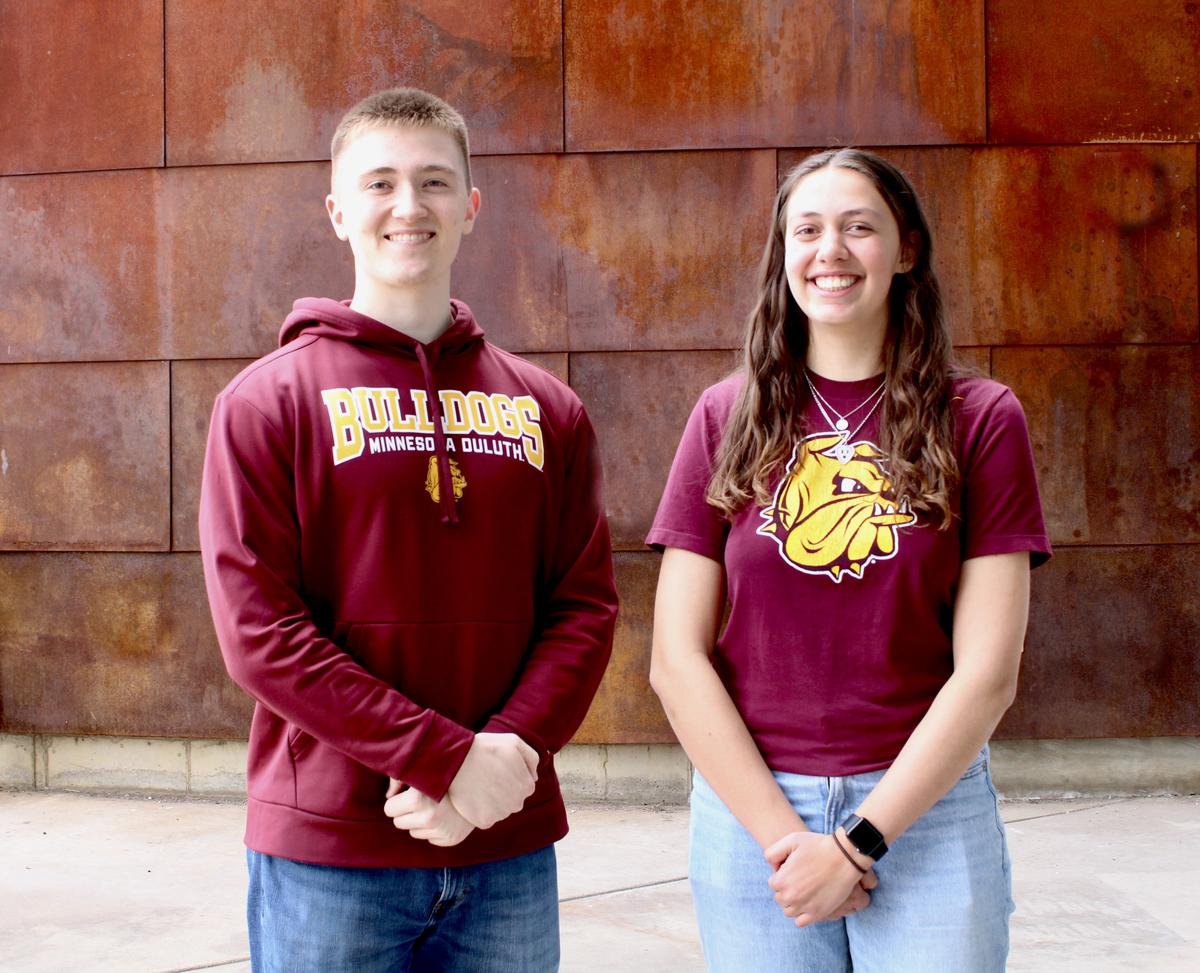With guidance from Director Monica Haynes and Editor/Writer Gina Grensing, students learn many hands-on skills related to applied economic research and technical writing.
May Graduates: Kenny Nadeau and Erin Hopkins
Here’s what former UGRAs Kenny Nadeau and Erin Hopkins, who graduated in May, said were their favorite BBER projects and what they learned while working here.
Project That Was the Best Experience
Kenny: The best project experience I had was working on the potential I-35 conversion in downtown Duluth. My primary task was to analyze the report’s case studies and how their converted areas were performing years after completion. I looked at things like changes in area green space, number of businesses, sales volume, and the like.
While I got to work on so many impactful projects, the I-35 conversion project felt like it held the highest potential impact on the Duluth area and having contributed to that feels great!
Erin: The project that was the best experience for me was the I-35 resizing project. When I started in June as a UGRA, the project was just beginning. I got to see the project through from start to finish; it was really cool to see it come to life and then get sent out into the world. My work focused on the case studies section. In the end, I knew that section like the back of my hand. It was a fun experience researching something so in depth and being able to answer any questions needed.
Project That Was the Most Difficult/Challenging
Kenny: What was most challenging wasn’t a specific project but rather conducting literature reviews on specific topics that I was not very interested in. While not necessarily difficult, reading for several days about these subjects sometimes felt monotonous and made preliminary work for projects feel challenging.
Erin: The most challenging project I worked on was the DECC’s event projection tool. For this project, I worked on recreating IMPLAN, the software tool we use to estimate economic impacts, into a tool that the DECC can use to estimate the impact of their events. This task had me working heavily in IMPLAN with a spending pattern and comparing results in different scenarios. With all the information I learned from these tests, I was able to recreate the impacts in Excel with lots of tedious formulas. Working on this tool was very fun for me and yet quite the challenge, making it very rewarding.
What Knowledge, Skills, or Abilities Have You Learned During Your Time at the BBER That You Think Will Help You in Your Future Career?
Kenny: After I started at the BBER (in October 2022), it quickly became clear that the staff do an amazing job of maximizing benefits to the UGRAs. I felt that the job diversifies the UGRAs’ skills and allows them to do work in a fun and interesting environment.
The BBER helped me better my research and writing abilities in more ways than I fully comprehend. My critical thinking and problem-solving abilities improved greatly, and I am excited to see where these newly polished skills can take me from here!
Erin: I improved so many of my skills while I was with the BBER. Working on the case studies section of the I-35 report improved my research and writing skills. My writing and analytical skills also improved through my involvement in other reports and writing BBER Linked-In posts. Working on the DECC tool improved my problem-solving skills. Plus, computing the economic impact results and having to explain them improved my analytical thinking.
